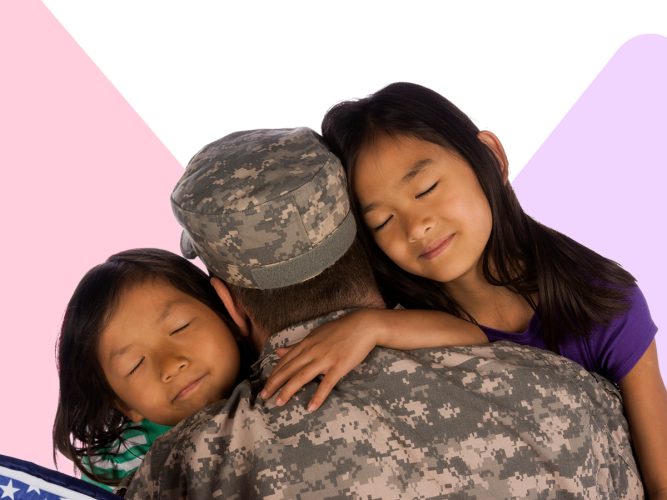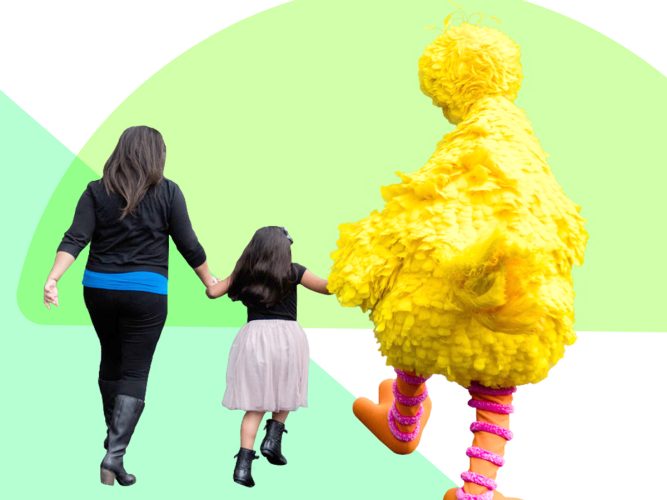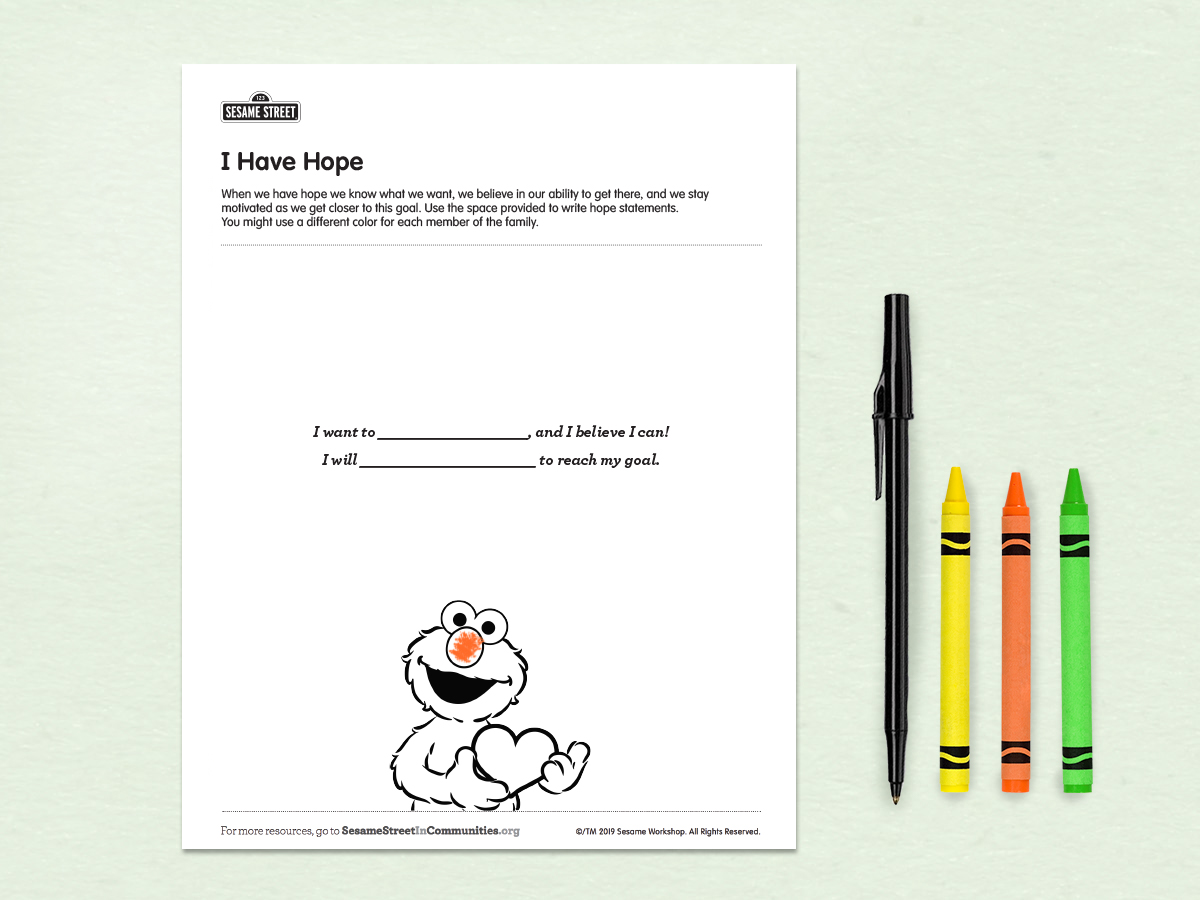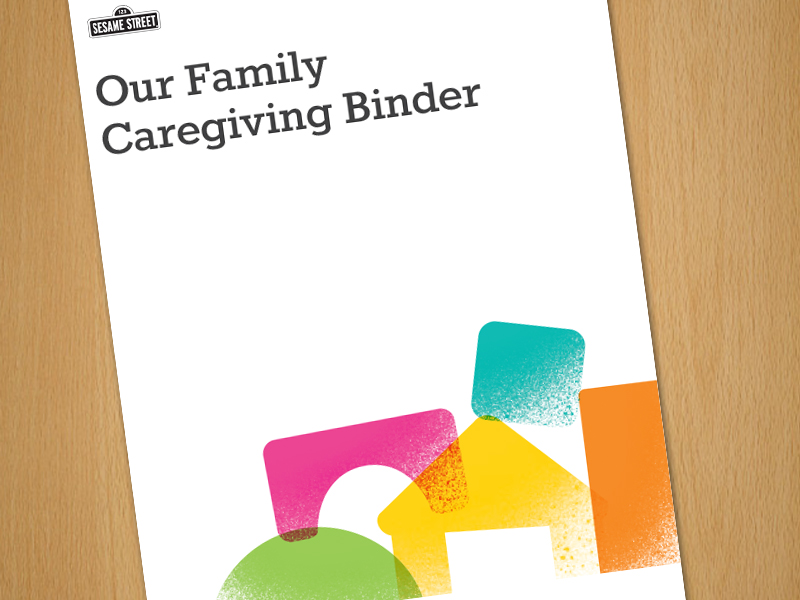
Session 3: My Caregiving Journey
Provide tools to set families up for success.
Caregiving is like a journey. It’s best taken one day at a time.
This workshop helps caregivers:
- Approach caregiving as a journey.
- Adopt a hopeful attitude.
- Recruit the whole family to get organized.
Looking for the rest of the sessions? Visit the Supporting Caregiving Families page.
NOTE: As with other workshops in this series, most activities can benefit both kids and adults, one-on-one or in groups. Depending on who you’re working with, change or leave out activities as you see fit. You know your kids and families best!
1. Owning Your Journey
Owning Your Journey
Caregivers often become overwhelmed. New information, new demands on their time, and complicated new skills to learn can make them feel like they’ve lost control. As a provider, you can help caregivers find hope for the future and balance for today.
Let caregivers know:
- Many things are out of your control, but not everything.
- Your mindset matters.
- A hopeful outlook can help you maintain balance and make clear, thoughtful decisions.
Read the article, It’s a Journey: First Steps, and ask caregivers to underline the parts that stand out to them. Where are you on your caregiving journey? What are you struggling with? Who supports you? What kind of support would be helpful? What helps you stay motivated?
No matter where caregivers are in their journey, a hopeful mindset can help them take the next step. Together, read H is for Hope (again, asking caregivers to underline and make notes), and talk about what hope looks and feels like to them.
The idea of this article is that when we have hope: we know what we want, we believe in our ability to get there, and we stay motivated as we get closer to this goal.
Keeping these three points in mind, help caregivers write a “Hope Statement” about themselves or their families.
- I want to be healthier so I can have more energy. I believe I can do this by making small changes: taking a 15 minute walk each day and having a sweet treat only once per week.
- I want our family to have memories of time spent together. I believe I can help make this happen by organizing a weekly family game night.
- I want to feel more connected to others. I’ll call a friend each week to just catch up.
Kids can get in on the action, too! Suggest writing a hope statement to build a character trait the child admires—like kindness, curiosity, or patience. For example, I want to be a kind person, and I believe I can! I’ll stay on the path toward kindness by helping others, saying thank you often, and taking care of the environment.
2. O is for Organized
O is for Organized
Caring for a loved one with a long-term condition or injury is hard work. It can mean keeping track of many appointments, medical reports, insurance statements, and more. Staying organized can feel like a daunting task. You can help caregivers set themselves up for success by offering creative, family-friendly ways to organize their information.
Let caregivers know:
- Staying organized will help you ease some stress, keep your appointments, and fulfill responsibilities.
- Keeping a calendar in plain sight can help all members of your family know what’s coming up.
- There are many ways to stay organized. One fun and creative way is to make a family caregiving binder.
- The whole family can pitch in.
Host a family-binder-making workshop to help participants feel capable and enthusiastic about getting organized. Provide each family with a binder that has a clear sleeve on the front. Offer a variety of art supplies the families can use to make a special cover for their binder. They might use the printables provided as dividers in their binder to create sections that make sense for their family. Participants might also include elements from previous and upcoming sessions, such as their hope statements from this session, and their team chant from session six.




